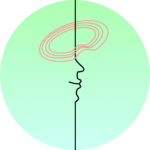Exploring the Science of Memory: How Do We Remember and Forget?
Cognitive psychology delves into the intricate processes of the human mind, exploring how we remember and forget.

Understanding Memory as a Cognitive Process
Memory is a fundamental aspect of cognitive psychology and a vital component of our daily lives. It encompasses the processes of encoding, storing, and retrieving information, each playing a crucial role in how we experience the world. Encoding refers to the initial processing of information into a form that can be stored in the brain. This step is influenced by various factors, including attention and perception, which determine how effectively information is encoded. Once information is encoded, it moves to storage, where it can be retained for short or long periods. Retrieval, the final process, involves accessing stored information and bringing it into conscious awareness. The interplay between these processes determines how effectively we can recall past experiences and use them to inform current decision-making.
Theories of Memory: Models and Mechanisms
Several theories and models have been proposed to explain the mechanisms of memory within cognitive psychology. One of the most prominent is the multi-store model, which divides memory into three distinct stages: sensory memory, short-term memory, and long-term memory. Sensory memory briefly holds information from our senses, allowing us to process it before it is transferred to short-term memory. Short-term memory, often referred to as working memory, is where information is temporarily held and manipulated. This stage is crucial for tasks such as problem-solving and reasoning. Long-term memory, on the other hand, is responsible for storing information over extended periods, and it is divided into explicit and implicit memory. Explicit memory involves conscious recall of facts and events, while implicit memory relates to unconscious skills and tasks. These models provide a framework for understanding how different types of memory operate and interact.
The Science of Forgetting: Why We Forget
Forgetting is an intriguing aspect of memory that cognitive psychologists strive to understand. Several theories attempt to explain why we forget, including decay theory, interference theory, and retrieval failure. Decay theory suggests that memories fade over time if they are not accessed frequently, a natural erosion of memory traces. Interference theory proposes that forgetting occurs because new information can disrupt the retrieval of older information. This can be proactive, where old information interferes with new learning, or retroactive, where new information affects the recall of older memories. Retrieval failure, meanwhile, posits that memories are not lost but rather temporarily inaccessible due to insufficient retrieval cues. Understanding these mechanisms helps cognitive psychologists develop strategies to improve memory retention and combat forgetting.
The Role of Attention in Memory
Attention is a critical factor in the processes of memory, influencing both the encoding and retrieval of information. Attention dictates what information is encoded into memory, as we are more likely to remember details to which we have paid close attention. The concept of selective attention, where we focus on specific stimuli while ignoring others, plays a significant role in determining what is stored in memory. Divided attention, on the other hand, can hinder memory performance, as it reduces the amount of cognitive resources available for processing information. Additionally, attentional processes are involved in retrieving information, as focused attention can enhance our ability to recall memories. Cognitive psychologists study these relationships to better understand how attention can be harnessed to improve memory.
Applications and Implications of Memory Research
Research in cognitive psychology, particularly in the domain of memory, has significant implications for various fields. Educational strategies benefit from understanding how memory works, enabling the development of effective teaching methods that enhance learning and retention. In the realm of mental health, cognitive therapies often incorporate memory techniques to help individuals cope with anxiety and depression. Moreover, memory research contributes to advancements in artificial intelligence, where principles of human cognition inform the development of algorithms for data processing and storage. The study of memory also aids in legal settings, improving the reliability of eyewitness testimonies and understanding the dynamics of false memories. As research continues to evolve, the applications of memory science promise to enhance various aspects of human life.
Conclusion
The exploration of memory within cognitive psychology reveals the complexity and importance of this cognitive process. By understanding the mechanisms of remembering and forgetting, we gain insights into how our minds work and how we can optimize memory performance. Whether for educational, therapeutic, or technological applications, the study of memory continues to offer valuable contributions to our understanding of human cognition. As cognitive psychology progresses, it holds the potential to unlock further mysteries of the mind, providing deeper knowledge and practical solutions for everyday challenges.
